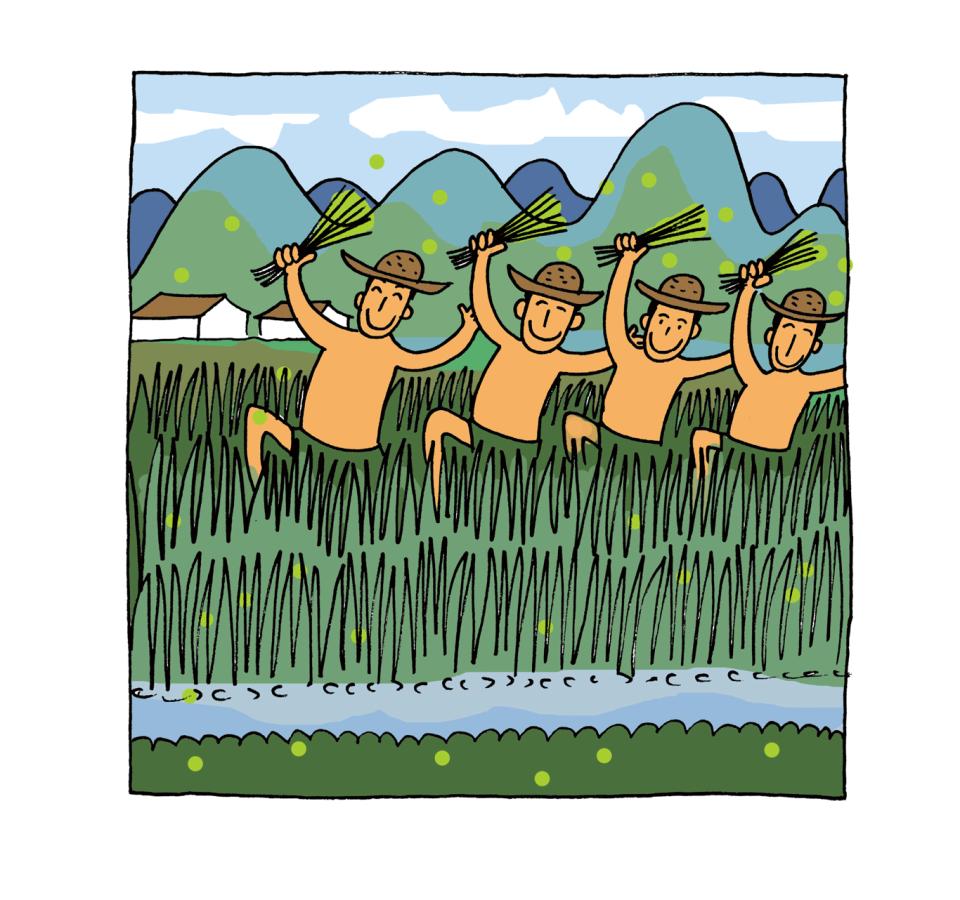Rising real estate prices have driven many aspiring musicians out of major cities, but there has been an upside: property developers are now one of the biggest sources of income for performers.
Music is like water – it’s necessary for life, but no one wants to pay for it.
At one time, we could make money selling CDs, but now no one even has a CD player.
However, our overall financial situation is improving, mostly due to the real estate
market.
All across China – including where I live, in Dali, Yunnan Province – real estate developers and their partners in municipal governments are creating high-end housing and retail areas, trying to persuade people to invest and move in.
This creates opportunities for musicians.
First, real estate companies frequently hire musicians to play a free festival for the local people to get them to come out and take a look at the properties.
The key here is to get the right types of people – people with money and culture.
Over the October National Day Holiday, I played at a development in Tengchong – a subtropical city only 50 kilometers from the Myanmar border – built in a minimal style that said “architecture magazine.”
The buildings were all low, to show off the surrounding mountains. The local terraced rice fields were retained in the design to remind people they were close to nature.
The festival stage was in the middle of the rice patties.
We had to navigate along the narrow mud dams with our equipment to get to the stage.
All around us were cows and water buffalo, apparently serenely grazing in the terraced patties, but actually staked into place.
To convey “high art,” and “cultured neighbors,” the first act was a group of young dancers in skin colored body suits that looked like naked flesh from a distance.
To the sounds of wind chimes and a meandering Chinese zither, the dancers popped up from hiding places amid the rice paddies, waved their arms toward the sun, and mimed the hardships and joy of working in the fields. For 45 minutes.
The local townspeople gazed on in respectful silence for the entire dance, presumably, like me, waiting for something to happen. It never did.
Our act includes getting people to do traditional American barn dancing with us. To my surprise, people gamely navigated the narrow rice paddies and tethered bovines to join in. I suppose there is not a lot going on in Tengchong on most days.
A second opportunity occurs when the property developers decide to have ongoing cultural activities to anchor a development. The art movie theater, gallery or music venue will get free or very low rent for a period of time, on the condition they provide the agreed-upon programming.
This led to my band getting a residency at a venue in Guiyang, capital of neighboring Guizhou Province.
We billed ourselves as playing traditional US folk music, with some songs dating back 300 years.
The performer who came on before us was a musician from the Xinjiang Uyghur Autonomous Region. But all he played was Hong Kong love ballads. We couldn’t understand why, until we got on stage, and the boss heckled us to play “Hotel California” until we eventually relented.
On the other extreme was a live house in the suburbs of Lijiang, a tourist city north of Dali. It was run by a collective of serious musicians who believed in pure art. Since the venue was provided to them for free as long as they had music every night, they did not have make any compromises at all.
The chief musician played a guitar with a violin bow, and each night led a group on “free improvisation,” which he carefully curated. He demanded that the music sound exotic and unrecognizable, and if it sank into anything with a steady beat or melody, he would slam his bow into the guitar repeatedly to shake us back into the pure art zone, or start Mongolian throat singing in a low, deep voice until we all stopped playing.
The result was kind of intriguing, for around 20 minutes, until a listener realized that the “free improvisation” was just a few repetitive tricks done over and over again.
The end result is that the owners and their friends had a private clubhouse in the middle of a luxury development, because no one else could bear the music, giving new meaning to the term “free improvisation.”
In ancient times musicians were hired by emperors and princes. Today we are hired by real estate companies. Until someone invents a smartphone app that lets people order musicians to their home to play a few songs when the mood hits them, I’m happy to have a patron. At least I’m getting back some of the exorbitant rent I’ve paid over the years.

 Old Version
Old Version